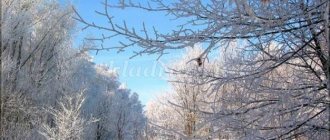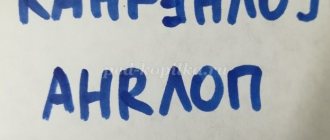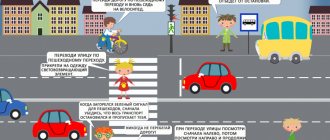Quest for older preschoolers and parents “In search of a magical gift”
Author:
Okhrimenko Tatyana Ivanovna
Educator at Borovsky MADO
kindergarten "Zhuravushka"
Goal : Development of cognitive processes in older preschoolers through experimental activities.
Tasks:
1. Develop cognitive activity, curiosity, imagination and thinking.
2. Cultivate emotional responsiveness, goodwill, the ability to work in a team, and coordinate your actions with the actions of your comrades.
Equipment for tasks:
2 chests, tokens, a Kinder Surprise egg, a jug, water, stones, a container with water, shells, a nail, a magnet, balloons, funnels, tennis balls, sieves for sifting sand.
Characters:
Magician Krex, Barboskina, Simka, Baba Yaga, Masha and the Bear.
Progress of activities:
At the summer sports playground, children are greeted by the sad magician Krex. Magician: “Guys, I have prepared an exciting program for you, but the main wizard Walter bewitched me and deprived me of my magical power, I cannot perform a single trick. Will you help me? In order for the magical power to return to me, I need to collect a lot of tokens in 40 minutes. You will split into two teams and go to different laboratories, where cartoon characters and complex experiments await you. After each successfully completed experiment, you will receive a token. Difficult experiences and tasks await you, but I believe that you can handle it! I'll be looking forward to seeing you here in 40 minutes. And to make it easier for you to find laboratories, you will receive a map with their names.”
Children and teachers go to different laboratories.
Laboratory No. 1 (“Magic Sandbox”)
Experiment with sand “Treasure Diggers”.
The children are met at their site by Lisa Barboskina: “Hello, guys! Are you ready to help Krex? The first token is hidden in the sandbox. You need to use a sieve to find the token in a large pile of sand. Well done guys, get your first token. Want to earn another one? Build a beautiful sand castle for me. What properties of sand helped you cope with my tasks? Children's answers: wet sand cannot be poured over, but you can sculpt from it. It takes any shape until it dries. This happens because in wet sand the grains of sand are glued together by water, and in dry sand there is air between the grains of sand. Very good. I wish you good luck in your next lab.”
Fairytale laboratory.
Baba Yaga meets the children in a birch grove. "Fu Fu Fu! Previously, the Russian spirit was unheard of and unseen, but now the Russian spirit itself has appeared! Why did you come?” Children's answers. Okay, I'll give you a token, but first complete my task. Take the funnel and turn it wide side down. Place a tennis ball in it and hold it with your finger. Now blow into the narrow end of the funnel and stop supporting the ball. If you can hold the ball, the token is yours. The faster the air passes by the ball, the less pressure it exerts on it. As long as you blow, the ball will remain in the funnel. They did the task well, but I hid the token in one of the balloons (the balls are hung on tree branches), if you’re not scared, burst the balloons and you’ll find your token.”
Laboratory No. 3 “Wonderful Magnet”
Simka meets the children: “Hello, guys! Imagine that you are in a desert where treasures are hidden. What will help you quickly find them in a sea of sand? Pour semolina into a bowl, bury paper clips and coins and invite the children to use a magnet to find them. “You are very clever and brave guys, you honestly earned your token. What property of a magnet helped you find treasures? (The magnet attracts iron). Wish you luck".
Laboratory No. 4 “Sorceress – water”.
The children are met by Masha and the Bear: “Hello, kids, do you recognize us? We love experimenting with water. And you? Here is my task: you need to get the kinder surprise egg out of the jug without putting your hand in it. From a wide range of materials, children must choose water, but there is not enough water to get the egg. You can use stones to raise the water level. Pebbles, filling the jug, raise the water level. Bear: “And now my experience. Imagine that you are standing on the seashore and really want to get a shell.” In front of the children is a container of water (plastic bottle). At the bottom is a shell, with a metal object, for example a nail, attached to it. Children need to get a shell. The secret is that the magnet does not go into the neck of the container. But a magnet can attract studs through the walls of the container. “What property of a magnet did you use? Children's answers: the magnet attracts iron even through the walls of the bottle. We did a great job and earned tokens.”
Children with tokens return to the magician. Guys, let's check if my abilities have returned to me. The guys sit down, and the Magician shows tricks.
Focus #1
In front of the children, the magician pierces a balloon with a long and sharp knitting needle. (Transparent tape is glued to the ball on both sides).
Focus #2
Necessary attributes - 2 balloons inflated with helium, a woolen rag (scarf), a piece of paper, thread.
The essence of the trick: A thread is cut and balls are tied to the ends. Both balls are rubbed with a woolen cloth. The magician takes the thread by the middle, so that the balls hang in the air at the same distance from the ceiling. The balls begin to run away from each other. Next, the magician tells the children: “Of course, you all know that when you rub balloons with a woolen cloth, they begin to become electrified and repel each other. And who can do it so that, without touching the balls, they will be brought together?” The most active spectators begin to blow on balloons or otherwise create air currents. But everything is in vain. The magician takes a piece of paper and places it between the balls. And, lo and behold, the balls come closer together.
Thanks guys, you helped me get my powers back. Now I can again delight everyone with my tricks. A surprise awaits you, but to find it, you need to guide one person through the maze! One person is blindfolded and thrown into a labyrinth, which is laid out on the ground with ropes. The rest of the team must guide the child through the entire maze so that he does not go beyond the limits. Any step beyond the line and you will have to go through the labyrinth from the very beginning. While guiding him through the maze, each team member can say only one word and only in his turn. If the guides get confused, saying two words or out of turn, the blind person begins the passage of the labyrinth all over again. Thus, the children soon begin to say something like this: “Go 1 step forward,” “2 right, “3 left,” “Stop” ... etc. At the end of the maze, chests with encyclopedias await the children. The quest ends with blowing soap bubbles.
Bibliography
1. Zubkova N. M. “Scientific answers to children’s “whys.” Experiments and experiments for children from 5 to 9 years old. 2009
2. Kulikovskaya I. E., Sovgir N. N. Children's experimentation. Senior preschool age. - M.: Pedagogical Society of Russia, 2003. 3. Organization of experimental activities of preschool children: Methodological recommendations / Ed. L. N. Prokhorova. - M.: ARKTI, 2008. 3. Nuzhdina T. D. “Encyclopedia for kids. Miracles are everywhere.” Ya., 1998. 4. Ryzhova N. A. “Water Sorceress.” M., 1997.
5. Smirnov Yu. I. “Air” 1998
6. Tugusheva G. P., Chistyakova A. E. “Experimental activities of children of middle and senior preschool age” 2009
Internet resources
https://nsportal.ru/detskijsad
https://www.maam.ru/detskijsad
We invite teachers of preschool education in the Tyumen region, Yamal-Nenets Autonomous Okrug and Khanty-Mansi Autonomous Okrug-Yugra to publish their teaching materials: - Pedagogical experience, original programs, teaching aids, presentations for classes, electronic games; — Personally developed notes and scenarios of educational activities, projects, master classes (including videos), forms of work with families and teachers.
Why is it profitable to publish with us?
1. “Kindergartens of the Tyumen Region” is an officially registered specialized media outlet at the federal level. 2. The activities of the editorial office are supported by the Department of Education and Science of the Tyumen Region 3. We issue a “Certificate of Publication” in the media. 4. The document has a unique number, is entered in the register, has the original seal of the editorial office of the online publication and signature. 5. “Certificate of publication” in the media is sent to the author in both paper and electronic versions.
Details >>>
Sample “Certificate of publication of author’s methodological material in the media.”pdf
Share
“Quest game” as a form of joint activity between preschool children and their parents.
Firstly
, it should be unusual, but safe for children,
Secondly
, to increase the interest of children, methods of movement can be different,
Thirdly
, there should be a sufficient number of them with visits to little-studied “corners”;
selection of tasks;
preparing props for each task;
design of each station where participants perform a task;
When methodically developing tasks, it is necessary to rely not only on the children’s existing knowledge, skills and abilities, but also on the child’s zone of proximal development.
In the House of Children's Creativity No. 2 in the city of Irkutsk, in the Umka association, quest games were held for preschoolers. In the quest game “Sea Voyage!” Children, together with pirates, searched for hidden treasures, completed pre-prepared tasks (built a ship using the origami technique, put together a puzzle, looked for differences, performed a pirate dance, showed their physical fitness, and more). The second quest “Super Agent School”, at the request of parents and children, was graduation. The quest involved 12 parents and two teams of children of 15 people each. Each team was accompanied by an agent and a photographer. The tasks for children were selected taking into account the age characteristics and interests of the children. During the game, students independently overcame obstacles to achieve their goal. They consolidated the skills of basic types of movements (throwing, jumping, running and agility, etc.), showed their abilities (guessing fruits by taste), completed a task using the origami technique, solved mathematical “tricky” problems, children learned to use binoculars (read a message from super agents), made up words from letters, and so on.
During the quest game, all participants received a colossal charge of positive energy, the children were more relaxed in communication, which increased cognitive and speech activity, they learned to solve problems together, which leads to the unity of the children's team.
A huge advantage in holding such an event is the joint work of the teacher, students and parents as a single team.
The basis for the success of any quest depends on the chosen topic, how relevant and interesting it will be for 5-7 year old children. Having even a little knowledge on this topic, and having received a certain freedom of thinking and action, with minimal adult intervention, children will be able to independently achieve the desired result. The role of the teacher in this case comes down to unobtrusively directing children's reasoning in the right direction, and not to a direct hint! Thus, the quest game stimulates teachers to transition from an authoritarian style of working with older preschoolers to partnership relationships.


